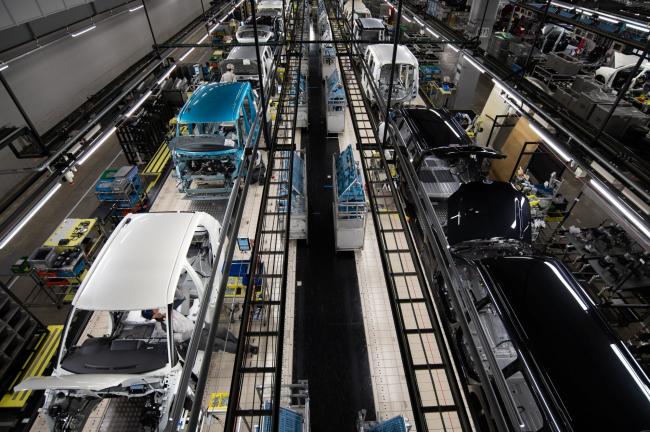(Bloomberg) -- Toyota Motor Corp. (NYSE:TM) expects vehicle production to exceed pre-pandemic levels, forecasting output of as many as 10.6 million vehicles during 2023 while warning that final shipments could be 10% lower if it is unable to procure enough parts, especially semiconductors.
The newly issued target would be a significant jump from the planned 9.2 million vehicles that the Japanese carmaker forecasts for the fiscal year through March. Toyota made 9.05 million vehicles in 2019.
As the world’s No. 1 No. 1 carmaker, Toyota is a bellwether for the rest of the global automobile industry and its suppliers. Volkswagen (OTC:VWAGY) said last week that it expects supply bottlenecks to ease and that it was confident for 2023, citing higher orders. Even so, parts shortages stemming from Covid-related lockdowns have challenged the industry, on top of rising costs for materials and logistics.
“Currently, we are working toward a production volume with a ceiling of 10.6 million units for 2023,” Toyota said in a statement Monday, adding that there’s a “downward risk fluctuation range of approximately 10%.”
Despite predicting a recovery last year, the Japanese auto manufacturer had to lower its production outlook for the current period in November, citing a persistent lack of chips.
“As Toyota says, this outlook takes into consideration downside risks due to parts procurement,” said Bloomberg Intelligence analyst Tatsuo Yoshida. “The target of 10.6 million vehicles reflects a clear and strong desire by Toyota to reach that goal.”
Underscoring the chip shortage, Toyota temporarily gave new car buyers just one smart key instead of two late last year, seeking to ration semiconductors. The measure applied to 14 models for sale in Japan, including Crown sedans, Prius hybrids and the battery-electric vehicle bZ4X.
“The situation this year remains difficult to predict due to factors such as semiconductor shortages and the spread of Covid-19,” Toyota said.
(Updates with analyst’s comment in sixth paragraph. A previous version of this article corrected the 2019 figure to reflect output instead of sales.)
©2023 Bloomberg L.P.

